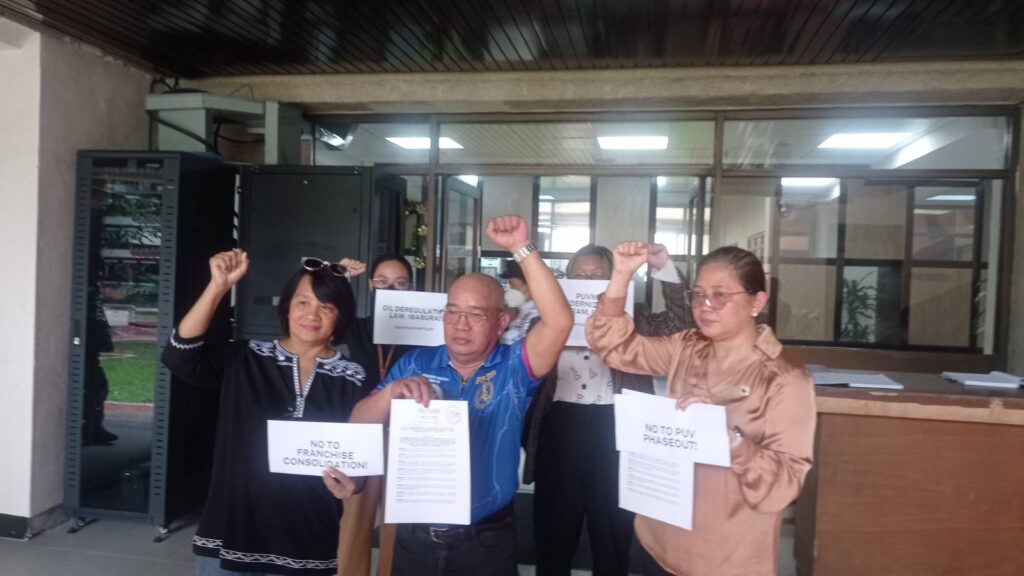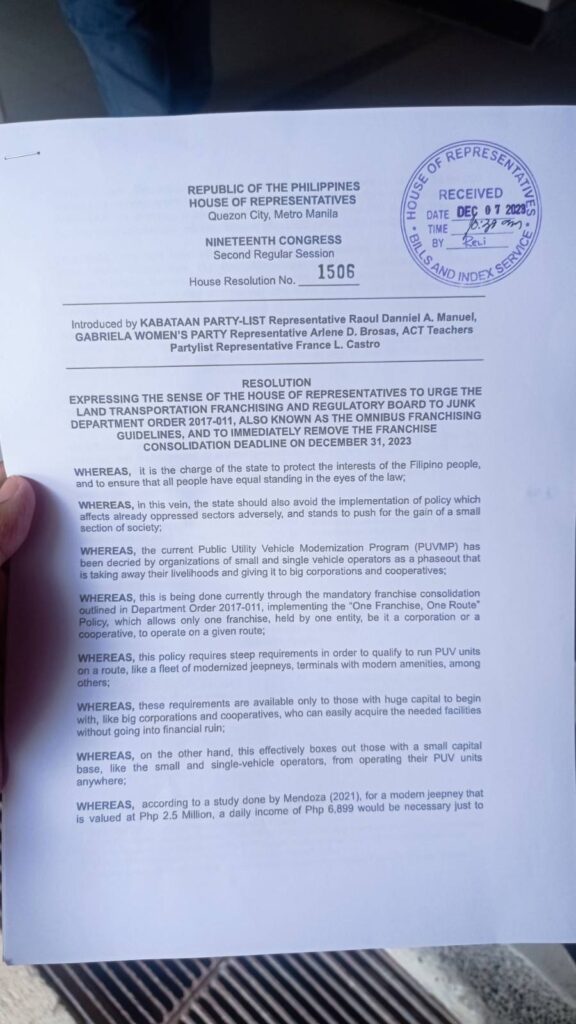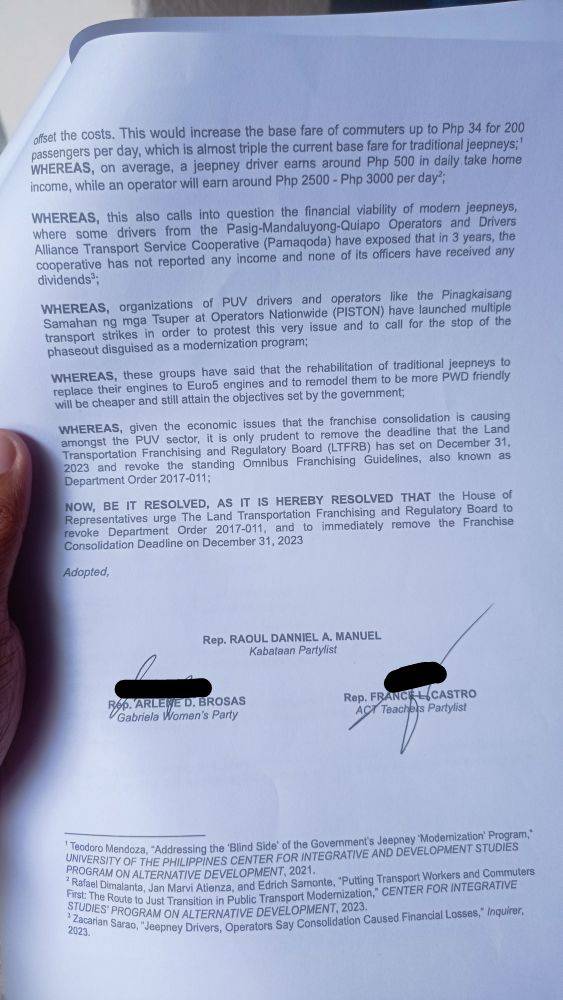
Transport group PISTON joined the Makabayan bloc on Thursday in filing a House resolution calling for the repeal of the Omnibus Franchising Guidelines (OFG) and the deferment of the December 31, 2023 deadline for the application of franchise consolidation.
The OFG, or the DOTr Department Order 2017-011, is the policy being used by the government to implement its Public Utility Vehicle Modernization Program (PUVMP), including the franchise consolidation requirement.
Mandatory franchise consolidation is one of the first steps in the implementation of the PUVMP. According to PISTON, PUV operators are being forced to surrender their individual franchises to be consolidated into a single franchise per cooperative or corporation. This could result in a monopoly by a few large cooperatives or corporations with the necessary financial capacity to comply with the hefty capital requirements for “modernizing” and controlling PUV routes, thereby concentrating market control in the hands of a few corporate entities.
“The DOTr and LTFRB insist that there is no phaseout on December 31, but only a deadline for consolidation. What they refuse to understand is that forcing small operators to surrender their right to own individual franchises is tantamount to a phaseout, not only of their vehicles, but also of their livelihoods,” said PISTON National President Mody Floranda.
The group urged the House of Representatives to promptly adopt the resolution to protect thousands of drivers and small operators who are on the brink of displacement by the start of 2024.


The resolution questions the feasibility of the franchise consolidation requirement, highlighting the financial struggles faced by operators who have already complied with the program. A jeepney driver typically earns around Php 500 per day, while a jeepney operator earns approximately Php 2,500 per jeepney per day. These earnings fall far short of the estimated Php 6,899 daily income required for a modern jeepney to cover the costs of modernization, as per a study by Prof. Teodoro Mendoza of UPLB.
“The problem with consolidation is that once operators enter into it, there is no franchise to reclaim. So, if the cooperatives collapse or become deeply indebted due to the unreasonable requirements of the PUVMP, operators will not be able to reclaim the franchises they surrendered because they have already been consolidated. The LTFRB will simply transfer the consolidated franchises to large cooperatives or corporations with sufficient capital. Who benefits from this? Not us small operators, but the big businesses,” Floranda added.